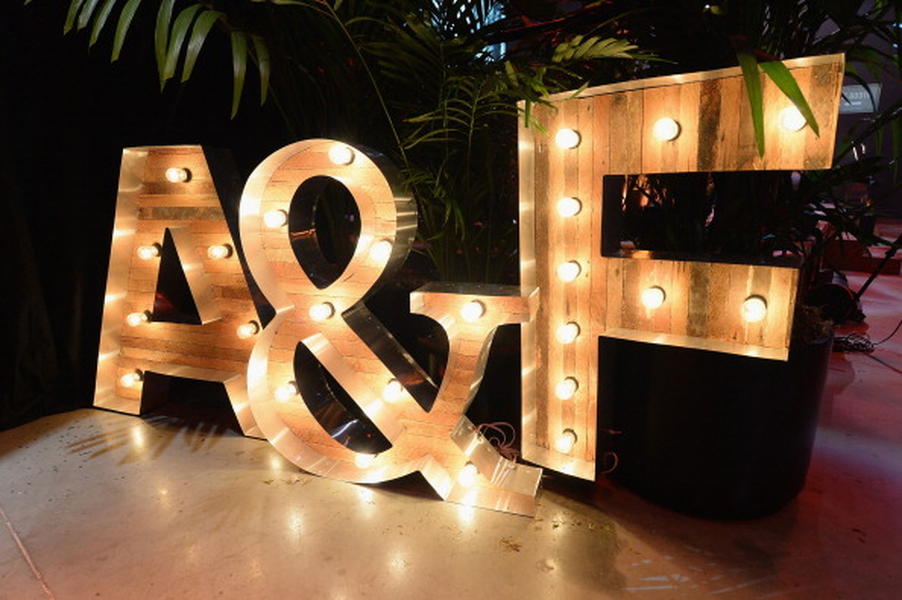Supreme Court to decide if Abercrombie committed religious discrimination


A free daily email with the biggest news stories of the day – and the best features from TheWeek.com
You are now subscribed
Your newsletter sign-up was successful
The Supreme Court will hear the case of a Muslim woman in Oklahoma who says Abercrombie & Fitch would not hire her because of the head scarf she wears for religious purposes.
In 2008, Samantha Elauf was 17 and applied for a job at the Tulsa Abercrombie Kids store. She said a friend who worked at the store said the hijab she wore would be allowed as long as it wasn't black, as sales associates were not allowed to wear black. The company has a "Look Policy," Bloomberg Businessweek reports, and is strict about the hair styles, make up, and sartorial choices of its staff.
Elauf was interviewed and scored a 6, which was enough for her to get a job. An assistant manager tried to hire Elauf, but a supervisor said the head scarf did not follow the look policy, and she wasn't hired. Later, he said he did not know that the scarf had religious meaning.
The Week
Escape your echo chamber. Get the facts behind the news, plus analysis from multiple perspectives.

Sign up for The Week's Free Newsletters
From our morning news briefing to a weekly Good News Newsletter, get the best of The Week delivered directly to your inbox.
From our morning news briefing to a weekly Good News Newsletter, get the best of The Week delivered directly to your inbox.
In 2009, the Equal Employment Opportunity Commission filed a lawsuit against Abercrombie on behalf of Elauf, and she was awarded $20,000 in damages. The decision was reversed in 2013, with the court saying Abercrombie couldn't be held liable since Elauf never told the company her religious beliefs were not in line with company policies. It was the EEOC that petitioned the Supreme Court to review Elauf's case.
A free daily email with the biggest news stories of the day – and the best features from TheWeek.com
Catherine Garcia has worked as a senior writer at The Week since 2014. Her writing and reporting have appeared in Entertainment Weekly, The New York Times, Wirecutter, NBC News and "The Book of Jezebel," among others. She's a graduate of the University of Redlands and the Columbia University Graduate School of Journalism.
-
 At least 8 dead in California’s deadliest avalanche
At least 8 dead in California’s deadliest avalancheSpeed Read The avalanche near Lake Tahoe was the deadliest in modern California history and the worst in the US since 1981
-
 Political cartoons for February 19
Political cartoons for February 19Cartoons Thursday’s political cartoons include a suspicious package, a piece of the cake, and more
-
 The Gallivant: style and charm steps from Camber Sands
The Gallivant: style and charm steps from Camber SandsThe Week Recommends Nestled behind the dunes, this luxury hotel is a great place to hunker down and get cosy
-
 ABC News to pay $15M in Trump defamation suit
ABC News to pay $15M in Trump defamation suitSpeed Read The lawsuit stemmed from George Stephanopoulos' on-air assertion that Trump was found liable for raping writer E. Jean Carroll
-
 Judge blocks Louisiana 10 Commandments law
Judge blocks Louisiana 10 Commandments lawSpeed Read U.S. District Judge John deGravelles ruled that a law ordering schools to display the Ten Commandments in classrooms was unconstitutional
-
 ATF finalizes rule to close 'gun show loophole'
ATF finalizes rule to close 'gun show loophole'Speed Read Biden moves to expand background checks for gun buyers
-
 Hong Kong passes tough new security law
Hong Kong passes tough new security lawSpeed Read It will allow the government to further suppress all forms of dissent
-
 France enshrines abortion rights in constitution
France enshrines abortion rights in constitutionspeed read It became the first country to make abortion a constitutional right
-
 Texas executes man despite contested evidence
Texas executes man despite contested evidenceSpeed Read Texas rejected calls for a rehearing of Ivan Cantu's case amid recanted testimony and allegations of suppressed exculpatory evidence
-
 Supreme Court wary of state social media regulations
Supreme Court wary of state social media regulationsSpeed Read A majority of justices appeared skeptical that Texas and Florida were lawfully protecting the free speech rights of users
-
 Greece legalizes same-sex marriage
Greece legalizes same-sex marriageSpeed Read Greece becomes the first Orthodox Christian country to enshrine marriage equality in law
